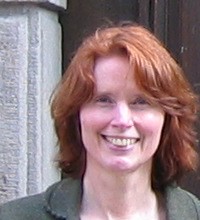We started class with a discussion of Peter Elbow's concepts of doubting and believing as relationships to writing process. We compared the two processes in terms of the notes below.
Doubting game
Mark things identified as important
Notice “errors” in terms of content or the way it is written
Judge the writing = Find a way to argue against it
Consistent with our experience?
Compare to outside standards
Coherent (any internal conflicts?)
Might challenge style or emotional content
Believing game
Looking for strengths rather than weaknesses
Get into the idea of the paper
Assume the writer (you) have something valuable to say and that they can say it
Affirming the writer’s ideas
Saying back ideas
Not judging encourages writers to take more risks
You then worked in groups to use the believing game as a way to respond to, think into, and receive your literacy narratives. In class discussion after this exercise, you observed that it was HARD to step out of the the doubting/ciritiquing game - but that seeing classmates work, and receiving it in affirming ways was - as Elbow said - a constructive way to think about how to move forward in your own writing.
Freewriting
We talked about the two ways freewriting works to turn off the internal editor: 1) by separating the gathering information/creative processes from the selecting the right language/polishing the ideas process; and 2) establishing a habit of mind where ideas and words are welcomed onto the page. The habit of mind is especially important - because you can step into that mode whenever you get stuck - and simply let yourself write through the tough spots - and then you can come back to them later, when more words are on the page.
After this discussion you did an experiment where you did an open freewrite = to prime the pump, followed by a focused freewrite where you wrote to prompts for the process narrative. For some of you this worked, for some of you- you didn't need any loosening up, and for some of you - it felt like an interruption to switch focus. So - use the results that apply to you!
Cooking-Growing
We briefly talked over Elbow's rationale and process for his write-the-paper-four-times method before there was an overpowering smell of smoke in the room. I think you his main idea - that letting go of control and trusting writing as a discovery process can work to create papers - and that it might even create papers with less agony that keeping tight control of the decision making for all the right language and sentences at the same time you are trying to discover.
For next week:
Read: Elbow, Chapter 3
Write: keep working on your process narrative and bring whatever notes you have to class
Wednesday, February 29, 2012
Subscribe to:
Post Comments (Atom)

No comments:
Post a Comment